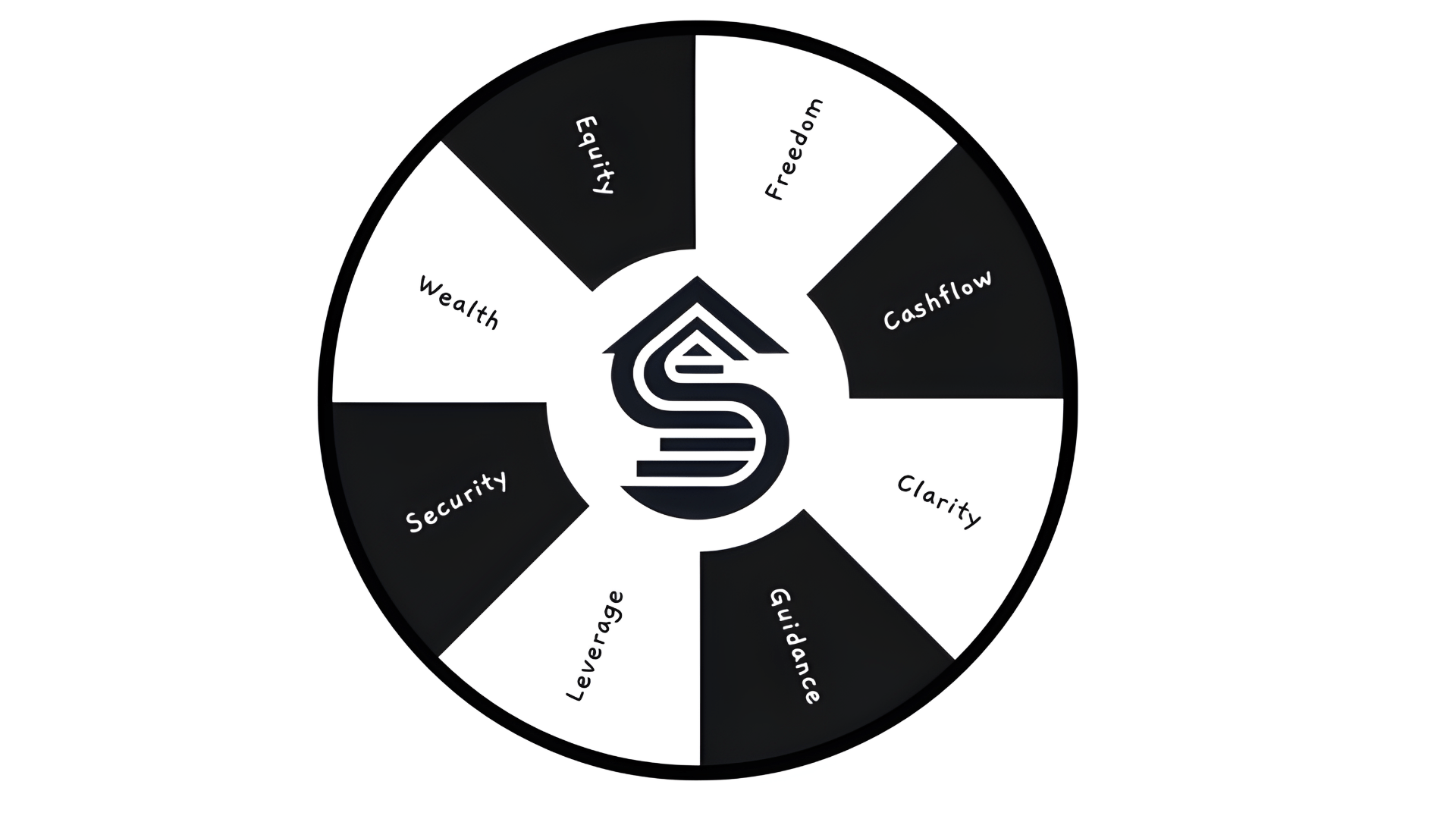1099 Loan Refinance: General Contractor Achieves Significant Monthly Savings Without Tax Returns

Educational Case Study Disclosure
This case study is hypothetical and for educational purposes only. Scenarios, borrower profiles, loan terms, interest rates, and outcomes are illustrative examples and do not represent current offers or guaranteed terms.
For specific details including down payment requirements, closing cost estimates, interest rate details, closing cost breakdowns, payment calculations, cash-to-close estimates, or an official Loan Estimate, it is highly recommended you schedule a meeting with one of our licensed mortgage advisors.
Learn more:
- 1099 loan refinance Reg Z advertising requirements (§1026.24) – CFPB official regulation
- 1099 loan refinance Reg Z full text and compliance – Electronic Code of Federal Regulations
- Official 1099 loan refinance advertising interpretations (§1026.24) – CFPB interpretations
- 1099 loan refinance MAP Rule (Reg N) mortgage advertising – Mortgage advertising rules
- NMLS Consumer Access – Verify 1099 loan refinance lender licensure
Actual loan terms vary by credit profile, property, occupancy, location, market conditions, and lender guidelines. For current options tailored to you, schedule a consultation or apply online.
Ready to explore your options? Schedule a call with a loan advisor.
See How This 1099 Loan Refinance Reduced Monthly Payments and Improved Terms for a Self-Employed Homeowner
David R., a 44-year-old general contractor based in Tampa, had built a successful residential construction business over 15 years, earning strong six-figure income annually from multiple commercial property developers and residential construction projects. As an established homeowner, David had purchased his primary residence several years earlier when interest rates were higher. Now he watched as current market rates dropped significantly below his existing mortgage rate, creating an opportunity to reduce his monthly housing costs substantially.
With excellent credit, consistent business income, perfect mortgage payment history, and substantial equity built in his home, David wanted to refinance to lower his monthly payment and improve his overall financial position. This wasn’t about accessing equity or increasing his loan amount—he simply wanted a straightforward rate-and-term refinance to capture lower rates and reduce his fixed housing costs. The monthly savings would allow him to invest more in his business growth, accelerate retirement savings, and create stronger financial security for his family.
However, David’s smart tax strategy—legitimately writing off equipment, vehicles, materials, subcontractor costs, and business expenses—created a significant obstacle when he approached traditional lenders for refinancing. Despite substantial income flowing consistently through his construction business, his tax returns showed significantly reduced taxable income after appropriate business deductions. Like most financially savvy business owners, David’s accountant had structured his construction business to minimize tax liability through legitimate write-offs. Those same deductions that saved him considerable tax dollars annually now made his tax returns show income far below his actual earning capacity.
Three conventional lenders rejected his refinance application within days, each telling him he didn’t qualify based on his tax return income. The rejections were frustrating because David wasn’t trying to borrow more, access equity, or take on additional debt—he simply wanted to refinance his existing mortgage at current favorable rates to reduce his monthly payment and save money over the remaining life of his loan. With rates at attractive levels and his financial situation strong, David needed a financing solution that recognized his actual earning capacity rather than his tax-minimized income.
Facing similar challenges? Schedule a call to explore your options.
The Challenge: Why Traditional Refinance Lenders Said No to This Established Contractor
David approached three conventional refinance lenders confident he’d easily qualify. He had purchased his home years earlier, never missed a single payment, maintained excellent credit with spotless payment history, and owned substantial equity built through years of appreciation and mortgage paydown. His construction business generated strong consistent income from long-term commercial clients and residential projects cultivated over 15 years. He wanted a straightforward rate-and-term refinance—no cash out, no increase in loan amount, just better terms at current lower rates.
All three lenders rejected his application after reviewing his tax returns.
How Do Traditional Lenders Evaluate 1099 Income for Refinancing?
Traditional mortgage lenders calculate qualifying income based exclusively on taxable income shown on tax returns rather than actual business revenue or earning capacity. They require two years of complete tax returns including all schedules, then use adjusted gross income after business deductions to determine qualification amounts. For self-employed borrowers and independent contractors, this approach creates a fundamental disconnect between actual earning power and what appears on tax documents.
The problem was crystal clear: David’s Schedule C showed significantly reduced adjusted gross income after legitimate business deductions for equipment depreciation, truck expenses, tool purchases, commercial insurance, licensing and permits, materials, subcontractor costs, and other operating expenses. Traditional refinance lenders calculated his qualifying income based solely on that taxable income rather than the substantial gross revenue flowing through his construction business consistently every year.
Why Did David’s Smart Tax Planning Prevent His Refinance?
“I felt trapped by my own smart tax planning,” David explained. “My accountant had structured my business perfectly to minimize tax liability through legitimate write-offs—exactly what business owners should do. I was saving substantial amounts in taxes annually, money I could reinvest in equipment, trucks, tools, and business growth. But now those same deductions were preventing me from refinancing to lower my mortgage payment. I was being penalized for being financially smart about my business structure.”
The numbers told a frustrating story. David’s construction business generated substantial gross income annually from consistent client relationships built over 15 years in the Tampa market. His business bank statements showed healthy regular deposits from commercial developers and residential clients. But his tax returns—after all legitimate business deductions that any competent accountant would recommend—showed income that traditional refinance lenders considered insufficient for the refinance amount needed.
What Was at Stake Beyond Lower Monthly Payments?
“This wasn’t about borrowing more money or taking cash out,” David said. “I just wanted to refinance my existing mortgage at current lower rates to reduce my monthly payment. I had substantial equity built up, perfect payment history over years, and excellent credit. My construction business was thriving with strong project pipelines. But I couldn’t get past the income verification hurdle with conventional refinance programs that only looked at my taxable income.”
The stakes extended beyond just the immediate monthly savings. Every month David remained in his higher-rate mortgage meant money unnecessarily lost—funds that could be redirected toward business growth, retirement savings, his children’s education, or building a financial cushion. Over the years and decades remaining on his mortgage, staying at the higher rate would cost him substantial cumulative interest that could be avoided through refinancing at current favorable rates.
How Did Timing Pressure Intensify David’s Challenge?
Interest rates were favorable but could change quickly based on economic conditions. David had already invested time and application fees with three different lenders, receiving three consecutive rejections. Meanwhile, his existing higher-rate mortgage continued costing him significantly more each month than a refinanced loan would cost. The opportunity cost mounted with each passing month.
“Every month I waited was money lost,” David explained. “The difference between my current payment and what I could be paying after refinancing was substantial. Over the remaining years of my mortgage, that adds up to significant savings that I could be investing back into my construction business, putting toward my retirement, or using to build stronger financial security for my family. I needed a solution that worked with my tax strategy, not against it.”
Experiencing similar rejection? Schedule a call to discuss alternative qualification methods.
The Discovery: How David Found 1099 Loan Refinancing Programs
After his third rejection, David mentioned his refinance frustrations to another contractor while picking up materials at a building supply warehouse. The contractor shared his own remarkably similar experience—multiple conventional lender rejections followed by successful refinance approval through a 1099 loan program designed specifically for self-employed borrowers and independent contractors using alternative income documentation.
What Made David Skeptical After Three Consecutive Rejections?
Initially skeptical after three consecutive rejections from major conventional lenders, David hesitated to believe another financing approach would work differently. He’d heard assurances before, only to face the same income documentation wall focusing on taxable income rather than actual business earnings. But the referral came from someone in his exact situation—a fellow contractor who also wrote off legitimate business expenses and faced identical tax return challenges when trying to refinance. The specificity and similarity convinced David to schedule one more consultation.
David scheduled a call with a loan advisor specializing in alternative documentation refinances for 1099 contractors and business owners. He expected another explanation of why his income “didn’t qualify” despite his obvious business success and strong financial position. Instead, he discovered a fundamentally different approach to income evaluation.
How Do 1099 Refinance Lenders Evaluate Income Differently Than Traditional Lenders?
The conversation changed David’s perspective entirely. The advisor explained how 1099 loan refinance programs evaluate gross income before business deductions rather than taxable income shown on tax returns. This approach recognizes the reality that contractors, tradespeople, and business owners legitimately reduce taxable income through appropriate business deductions while maintaining strong actual earning capacity and cash flow.
Instead of using David’s significantly reduced adjusted gross income from his Schedule C, 1099 refinance lenders would review his actual 1099 income documentation from clients and construction contracts, verify those deposits in his business bank statements over an extended period, and apply a standard expense ratio to calculate qualifying income. The focus shifted from tax strategy to earning capacity—from what David reported to the IRS to what he actually earned from his construction business.
What Was David’s “Aha Moment” About This Solution?
“That conversation gave me hope that I could finally refinance and start saving money every month,” David said. “Someone actually looked at my real business income instead of just my tax forms. The advisor walked me through how the underwriting process would work differently—focusing on gross 1099 income and consistent deposit history rather than taxable income after deductions. It made perfect sense for contractors like me who structure businesses to optimize taxes while maintaining strong cash flow.”
The advisor also explained that 1099 loan refinancing works particularly well for contractors and tradespeople with long-term client relationships and consistent project income—exactly David’s situation. His 15 years of business relationships with commercial property developers, homebuilders, and residential clients provided the income stability and track record that 1099 refinance lenders value. Long-term client relationships demonstrate business sustainability even when income comes through 1099 forms rather than W-2 wages.
How Would This Approach Unlock David’s Refinance Goals?
David learned that he could qualify for refinancing based on his gross business income rather than his reduced taxable income, potentially unlocking the approval that three conventional lenders had denied. The program recognized that contractors and business owners structure their finances to optimize tax efficiency but still have real, verifiable income supporting their mortgage obligations. They don’t have less earning capacity—they simply report income differently for legitimate tax reasons.
More importantly, this solution meant David wouldn’t need to sacrifice smart tax planning to access favorable refinancing. He could continue taking legitimate business deductions recommended by his accountant while still qualifying for refinancing based on his actual business earnings. He wouldn’t face the false choice between minimizing taxes and lowering his mortgage payment.
The Solution: 1099 Loan Refinance Approval Process and Documentation
David worked closely with his loan advisor to assemble the required documentation for his 1099 loan refinance application. Unlike traditional refinances requiring two years of complete tax returns with all schedules and focusing heavily on adjusted gross income after deductions, the 1099 loan program emphasized his actual business revenue documentation and deposit consistency over time.
What Specific Documentation Did David Provide for His 1099 Loan Refinance?
Documentation provided:
- Extended period of 1099 forms showing consistent income from multiple long-term commercial and residential clients
- Business bank statements verifying deposits matched 1099 income documentation over substantial timeframe
- Current year-to-date profit and loss statement prepared by his accountant showing business profitability
- Excellent credit score with perfect mortgage payment history over years
- Current mortgage balance and home value documentation showing substantial equity position
- Appropriate cash reserves exceeding lender requirements for refinancing
- Client letters confirming ongoing contract relationships and strong project pipeline
- Business license and contractor certifications demonstrating established construction business
- Evidence of 15-year business history in Tampa market
- No cash-out needed—straightforward rate-and-term refinance for better terms
How Long Did the 1099 Loan Refinance Approval Process Take?
The approval timeline:
- Initial consultation (Day 1) — Discussed refinance goals, income documentation strategy, and monthly payment reduction objectives
- Pre-qualification assessment (Day 2) — Reviewed 1099 income documentation and estimated qualifying capacity based on gross earnings
- Document submission (Days 3-5) — Uploaded 1099 forms, business bank statements, P&L statement, and supporting documentation through secure portal
- Income verification (Days 6-10) — 1099 refinance lender verified gross 1099 income from each client/project and confirmed deposit consistency
- Credit and equity review (Days 11-13) — Verified excellent credit score, reviewed payment history, and confirmed substantial home equity
- Existing mortgage analysis (Day 14) — Reviewed current mortgage terms and calculated savings opportunity from refinancing
- Property appraisal ordered (Day 15) — Scheduled appraisal to confirm current home value and loan-to-value ratio
- Appraisal completed (Day 21) — Home appraised at favorable value confirming substantial equity position
- Conditional approval issued (Day 22) — Approved pending final verification of business stability and client relationships
- Final underwriting (Days 23-26) — Completed all remaining conditions and verifications
- Clear to close (Day 27) — Final approval granted with all conditions satisfied
- Closing scheduled (Day 30) — Closed on refinance exactly 30 days after initial application
How Did the 1099 Refinance Lender Calculate David’s Qualifying Income?
The 1099 refinance lender applied a standard expense ratio to David’s gross 1099 income from his construction business. Rather than using the dramatically reduced adjusted gross income showing on his tax returns after business deductions, they evaluated his actual earning capacity based on client payments documented through 1099 forms and verified through corresponding deposits in his business bank statements over an extended period.
This calculation method resulted in significantly higher qualifying income—sufficient to refinance his existing mortgage at improved terms and lower his monthly payment substantially. The consistent deposits from the same commercial developers and residential clients over many years demonstrated income stability despite the 1099 contractor structure.
What Made David’s 1099 Loan Refinance Application Particularly Strong?
Several factors strengthened David’s refinance application beyond just his 1099 income documentation. His excellent credit score with perfect mortgage payment history over years demonstrated financial responsibility and reliability. His substantial equity built through years of appreciation and mortgage paydown reduced lender risk. His long-term client relationships—some spanning a decade or more—demonstrated income stability and business sustainability. And his 15-year established business with proper licensing and certifications showed he was a serious professional, not a fly-by-night contractor.
The combination of strong actual income, excellent credit, substantial equity, long payment history, client relationship stability, and established business credentials positioned David as a low-risk borrower despite using alternative income documentation. The 1099 refinance lender recognized that his reduced tax return income reflected smart financial planning and business structure rather than weak earning capacity or financial instability.
Ready to refinance and reduce your monthly payments? Submit a refinance inquiry to compare your options.
The Results: How Did David’s 1099 Loan Refinance Improve His Financial Position?
David closed on his refinance in exactly 30 days after submitting his initial application—capturing favorable market rates before they potentially increased and immediately beginning to save money every month. The rate-and-term refinance lowered his interest rate substantially, reduced his monthly payment significantly, and positioned him to save considerable cumulative interest over the remaining life of his mortgage.
What Were the Final Terms of David’s 1099 Loan Refinance?
Final loan outcome:
- Approved refinance amount matched his existing mortgage balance—no cash out, pure rate-and-term improvement
- Significantly lower interest rate compared to his previous mortgage
- Favorable long-term fixed-rate structure providing payment stability and predictability
- Substantially reduced monthly payment creating immediate positive cash flow improvement
- Timeline: Application to closing in exactly 30 days from initial submission
- Considerable cumulative interest savings projected over remaining mortgage term
- Improved monthly debt-to-income ratio creating financial flexibility
- Maintained substantial home equity position throughout refinancing process
How Did 1099 Loan Refinance Qualification Compare to Traditional Lender Results?
Traditional refinance lender vs. 1099 refinance lender comparison:
Qualification Factor | Traditional Lender Result | 1099 Refinance Lender Result |
Income calculation basis | Reduced taxable income after all deductions | Gross 1099 income with standard expense ratio |
Qualification amount | Insufficient for existing mortgage refinance | Approved for full refinance amount |
Tax return requirements | Two years complete returns focused on AGI | 1099 forms and bank statement verification |
Business deduction impact | Severe negative impact on qualification | Minimal impact on qualification |
Client relationship value | Not considered or valued | Long-term stability strengthened application |
Refinance goal | BLOCKED ❌ | ACHIEVED ✅ |
Monthly payment reduction | Impossible | Substantial savings every month ✅ |
Long-term interest savings | None—stuck at higher rate | Significant cumulative savings ✅ |
Business tax strategy | Would require abandoning deductions | Maintained smart tax planning ✅ |
What Immediate Results Did David Achieve After Closing?
“Without the 1099 loan refinance program, I’d still be paying my old higher rate and losing money every single month,” David explained. “Traditional refinance lenders wanted me to either stop taking legitimate business deductions for two years to artificially inflate my taxable income, or just accept staying in my expensive mortgage indefinitely. Neither option made financial sense. This program let me refinance based on my real business income without sacrificing tax efficiency.”
The monthly payment reduction provided immediate cash flow relief and financial flexibility. David redirected a portion of the savings toward accelerating business equipment purchases he’d been delaying, another portion toward retirement account contributions, and retained some as additional cash reserves for business opportunities or family needs. The refinance created breathing room in his monthly budget while maintaining his family’s comfortable lifestyle.
How Does This Refinance Fit Into David’s Bigger Financial Strategy?
David views this refinance as smart financial stewardship—reducing fixed housing costs to improve overall financial flexibility and build wealth more efficiently. With lower monthly payments, he’s able to invest more in his construction business growth, build retirement savings faster, and create stronger financial security for his family. The cumulative interest savings over the remaining mortgage term represent substantial capital that can be deployed toward better purposes than unnecessarily enriching his previous lender.
“The best part is maintaining my smart tax planning while still accessing favorable financing,” David said. “I’m not forced to choose between minimizing taxes and refinancing my mortgage. The 1099 loan program recognizes that contractors and business owners structure our finances differently, but we still have real income and deserve access to competitive refinancing options. Now I have lower monthly payments, substantial long-term interest savings, and I’m still optimizing my business taxes exactly as before.”
What Are David’s Options for Future Financial Moves?
When market rates drop further in the future, David knows he can potentially refinance again using the same 1099 loan approach that worked successfully this time. If he decides to access home equity for business expansion, property improvements, or other purposes down the road, he understands that cash-out refinancing or a HELOC would be available options—both working with his business structure rather than against it.
The refinance also improved his overall financial position for any future borrowing needs. Lower monthly housing costs improved his debt-to-income ratio, making him a stronger candidate for business loans, equipment financing, or other credit products. The experience taught him that being a 1099 contractor doesn’t mean accepting suboptimal financial terms—it just means finding lenders who understand how contractors and business owners structure their income.
Ready to get started on your refinance? Get approved or schedule a call to discuss your situation.
Exploring Other 1099 Loan Options?
While David used a 1099 loan refinance to improve his terms and lower his payment, 1099 loan financing works for multiple scenarios:
- Need to purchase investment property? See how an IT consultant used 1099 loan purchase to buy first rental property without traditional income verification
- Want to access equity for business or investments? See how a freelance photographer used 1099 loan cash-out refinance to fund second investment property down payment and scale her portfolio
- View all case studies to find success stories matching your situation and financial goals
Key Takeaways for Self-Employed Homeowners
What Can 1099 Contractors Learn from This 1099 Loan Refinance Success Story?
- 1099 loan refinancing focuses on gross income before business deductions, not taxable income shown on tax returns—allowing self-employed borrowers to qualify based on actual earning capacity rather than tax-minimization strategies. This approach recognizes that contractors and business owners legitimately reduce taxable income through appropriate deductions while maintaining strong cash flow and earning power (IRS 1099 income reporting guidelines)
- Rate-and-term refinancing doesn’t require cash out or increased loan amounts—focus is purely on improving existing mortgage terms through lower rates and reduced monthly payments. David’s refinance was straightforward: same loan balance, better terms, lower payment. No equity extraction or increased debt required (Fannie Mae refinance guidelines)
- Long-term client relationships and business stability strengthen refinance applications—David’s 15 years of established client base with commercial developers and residential clients demonstrated reliable income even with 1099 contractor structure. Lenders value proven business relationships and consistent project pipelines
- Excellent credit and perfect payment history unlock better refinancing terms—strong credit profile helped David secure competitive pricing despite using alternative income documentation. Maintaining excellent credit maximizes options and minimizes costs regardless of income documentation type (CFPB credit score resources)
- Refinancing can reduce monthly obligations significantly when current rates are favorable—strategic refinancing at opportune times creates immediate cash flow improvements and long-term interest savings that compound over years. The cumulative effect of lower rates over time represents substantial wealth preservation
- Business owners don’t need to sacrifice smart tax planning to access refinancing—1099 loan programs work with your business structure, not against it, recognizing legitimate deductions as sound financial planning rather than income problems. You can maintain tax efficiency while still accessing favorable mortgage terms
Have questions about refinancing with alternative documentation? Schedule a call with a loan advisor today.
Alternative Loan Programs for Self-Employed Homeowners
If a 1099 loan refinance isn’t the perfect fit for your situation, consider these alternative financing options:
- Bank Statement Loan – Refinance using personal or business bank deposits over extended period, ideal for business owners with strong cash flow
- P&L Loan (Profit and Loss) – Qualify using CPA-prepared financial statements showing consistent business profitability
- Asset-Based Loan – Refinance based on investment portfolios and liquid assets rather than income
- Stated Income Loan – Alternative income documentation for unique business situations and non-traditional income structures
- Cash-Out Refinance – Access equity while refinancing if you need capital for business expansion or investments
- HELOC – Access equity without refinancing first mortgage if you want to preserve current favorable rate
Explore all loan programs to find your best option.
Want to assess your complete financial picture and explore refinancing opportunities? Take our discovery quiz to clarify your goals and next steps.
Helpful 1099 Loan Refinance Resources
Learn more about this loan program:
- Complete 1099 Loan Refinance Guide – Detailed requirements, rates, and qualification guidelines for refinancing with alternative income documentation
- 1099 Loan Refinance Calculator – Estimate your potential monthly savings and payment reduction based on your 1099 income
Similar success stories:
- How an IT consultant purchased first rental with 1099 loan purchase – Starting investment portfolio with alternative documentation
- Freelance photographer’s 1099 loan cash-out refinance success – Accessing equity for portfolio expansion
- View all case studies – Browse by your journey stage and profession
External authoritative resources:
- IRS 1099 Income Reporting Guidelines – Official guidance on 1099 income documentation and reporting requirements for contractors
- Fannie Mae Refinance Guidelines – Industry standards for refinancing and income qualification
- CFPB Credit Score Resources – Understanding credit’s role in refinancing and rate qualification
Ready to get started?
- Apply online – Start your refinance application today
- Schedule a consultation – Discuss your specific refinancing goals and payment reduction opportunities
- Take the discovery quiz – Deep dive into your financial goals and refinancing timeline
Need local expertise? Get introduced to trusted partners including loan officers and financial advisors experienced with self-employed borrowers and alternative documentation refinancing.
Disclosure: NEXA Mortgage, LLC dba Stairway Mortgage — NMLS #1660690 • Equal Housing Lender. Applications are handled by state-licensed Mortgage Loan Originators; you will be matched with an MLO licensed in your state. Not all products are available in all states. See our Licenses & Disclosures page for state-specific information. This case study is for educational and illustrative purposes only. Scenarios, borrowers, and loan terms may be hypothetical and are used to demonstrate potential financing solutions. Not a commitment to lend. All loans are subject to credit approval, program availability, and underwriting guidelines. Interest rates, fees, loan amounts, and other terms are examples and do not represent current offers or market rates. Actual terms vary by applicant profile, property, market conditions, and lender guidelines, and may change without notice. Texas homestead cash-out refinance is limited to 80% LTV and subject to Texas Constitution, Article XVI, §50(a)(6), including a 12-day waiting period before closing. For current rates and terms specific to your situation, please schedule a consultation or apply online. NMLS Consumer Access: https://www.nmlsconsumeraccess.org/
Need a Pre-Approval Letter—Fast?
Buying a home soon? Complete our short form and we’ll connect you with the best loan options for your target property and financial situation—fast.
- Only 2 minutes to complete
- Quick turnaround on pre-approval
- No credit score impact
Got a Few Questions First?
Not Sure About Your Next Step?
Skip the guesswork. Take our quick Discovery Quiz to uncover your top financial priorities, so we can guide you toward the wealth-building strategies that fit your life.
- Takes just 5 minutes
- Tailored results based on your answers
- No credit check required
Related Posts
Subscribe to our newsletter
Get the latest insights and mortgage case studies in your inbox.






